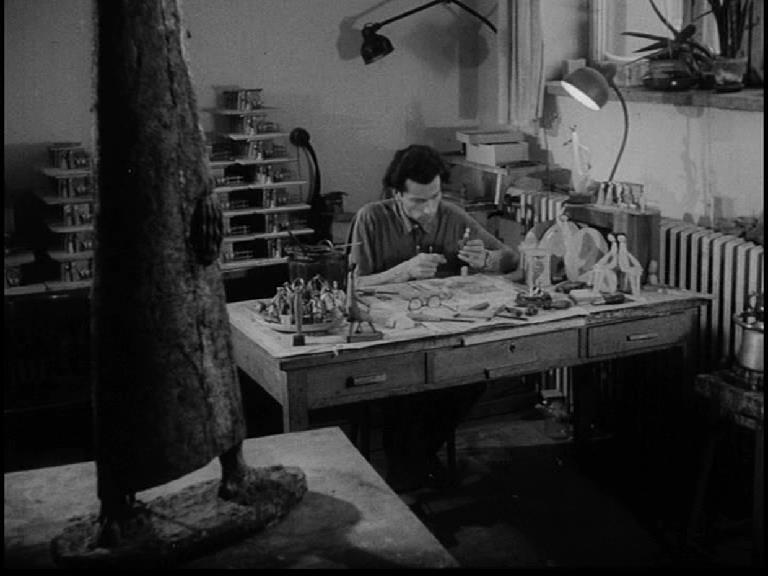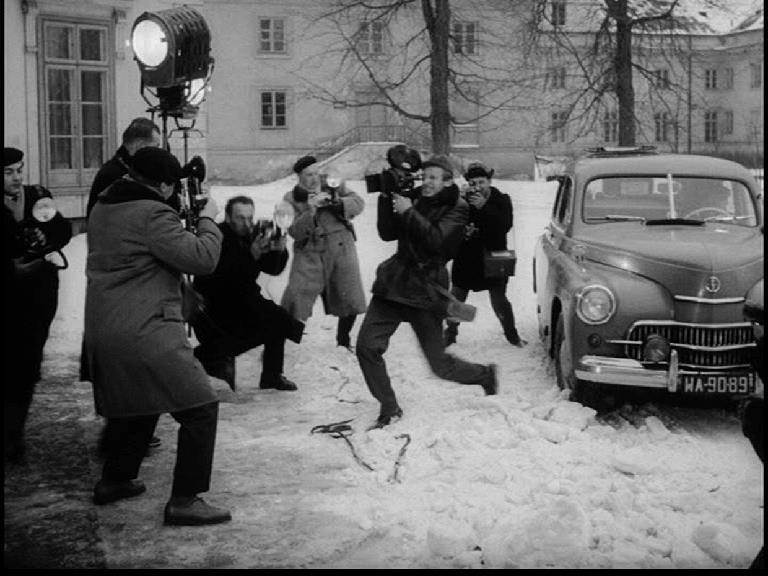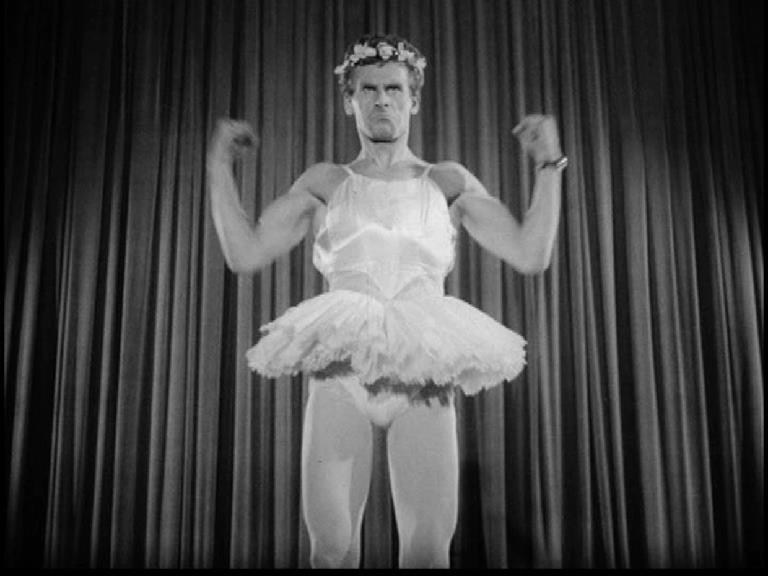Polska Kronika Filmowa (numer jubileuszowy – 1959 rok, nr 52 – A-B)
Polska Kronika Filmowa (numer jubileuszowy – 1959 rok, nr 52 – A-B)
Polish Film Chronicle (anniversary edition – 1959, nr 52 – A-B)
Production: POL 1959
The fact that Andrzej Munk made the anniversary PKF chronicle in 1959 was a surprising move in the director's artistic work, as he was already a great artistic authority who dealt with great historiosophic, political, and moral topics in his feature films. As one can tell, he also liked to distance himself from the seemingly marginal matters, and the anniversary edition of Chronicle best proves that, being a pastiche of the genre as such, and of its Polish version. Chronicle's eleven topics are united by Wiesław Gołas, the actor who takes on different roles, including one of a shipyard worker, scientist, preschooler, orator, cook, sportsman – protagonists of events noted by the chronicler, such as New achievements, New school, New sport, New plaque (with the information: No famous Pole lived here), etc.



Authors:
- Andrzej Munk
The figure and work of Andrzej Munk (1921-1961) is enshrouded in legend, the sources of which can be found in his untimely, tragic death, but most importantly in the belief that the creative output he left behind, and what he did not manage to do, hides a secret. This belief is based on experience coming from the encounters with the films he signed, and on the feeling that his sudden departure terminated an important movement in the history of Polish film – a movement which was separate, with no spiritually equivalent followers or successors. Going back to Andrzej Munk's four feature films (Man on the tracks, 1957, Eroica, 1958, Bad luck, 1959, Passenger, premiere 1963 – film finished by Witold Lesiewicz) confirms their intellectual openness. Time – the unrelenting auditor of value – did not upend or obliterate the importance of these films in the output of Polish culture. In his most important works Munk turned out to be an artist whose dialogue with the recipient lost nothing of its conceptual, social, and moral topicality. Original and entangled in tradition, modern for his generation, and universal in his historiosophic and ethical reflections, Andrzej Munk is an artist whose works are important because the discourse they hold – about the freedom of the individual, about responsibility and dignity – never loses its topicality.
Flmography:
Stracone złudzenia (student film, camera [DP]): 1948, production PWSF Łódź
Pielęgniarki (student film, camera [DP]): 1948, production PWSF
Art of The Young (student film, camera [DP]): 1949, production PWSF
It Began in Spain: 1950, production WFD in Warsaw
Science Closer to Life: 1951, production WFD
Destination Nowa Huta: 1951, production WFD
The Fairy Tale: 1952, production WFD
Peasant Diaries: 1952, production WFD
A Railwayman's Word: 1956, production WFD
Stars Must Be Alight: 1954, production WFD
One Sunday Morning: 1955, production WFD
The Men of the Blue Cross: 1955, production WFD
Man on the tracks: 1956, production WFF in Łódź
Eroica: 1957, production WFF i WFD
A Walk in the Old City of Warsaw: 1958, production WFD
Bad luck: 1959, production WFF
Polish Film Chronicle: 1959, no. 52 – A-B, production WFD
Passenger: 1961-63, production WFFTV productions (lost):
read more
Ksawery Pruszynski's Wieczory generalskie: 1959, production TVP
Terence Rattigan's Harlequinade: 1959, production TVP
Zofia Posmysz-Piasecka's Passenger: 1960, production TVP


